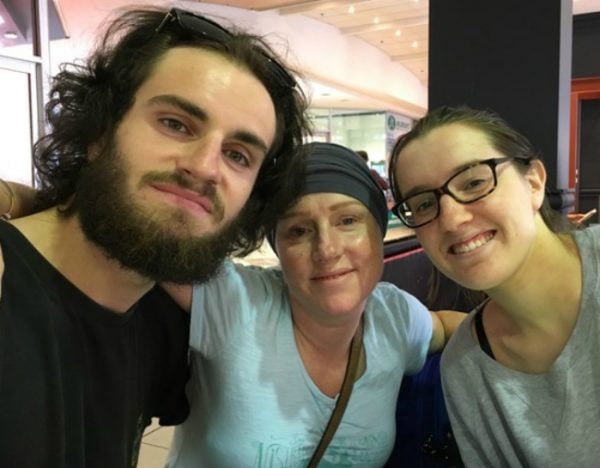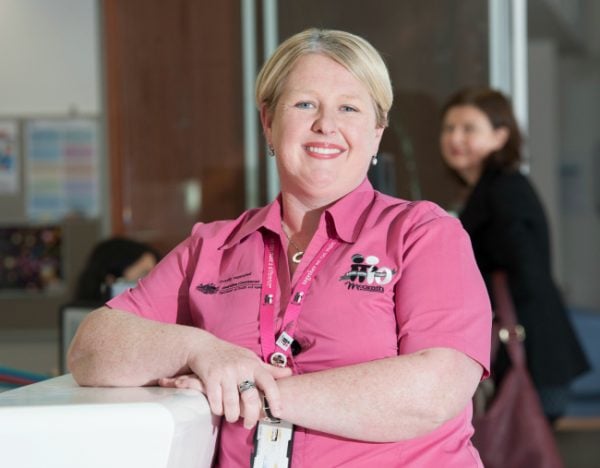Kate Radcliffe gets annoyed by little things. Her heater breaks down or her dog plays up, and she becomes frustrated – agitated, even. But when the single mother-of-two’s oncologist tells her another treatment has failed to curb the growth of her metastatic breast cancer, she simply takes it in and moves on.
“I guess I don’t cope very well if things don’t go according to my plan,” she told Mamamia. “But my cancer is in my plan now; it’s all part of it.”
The 45-year-old’s primary diagnosis was Stage Three, confined then to her left breast and lymph nodes. But what began in May 2012 as an unusual-feeling patch of skin, as a clear ultrasound, has now taken hold in her bones and liver.
While Kate doesn’t deal in timelines and refuses to think further ahead than her next holiday, she has resigned herself to the inevitable.
“I know this is going to kill me. Everyone is going to die at some stage – I just happen to know how, most likely, that will happen. I mean, I say ‘most likely’, because I suppose I could still get hit by a bus, couldn’t I?” she laughed.
“I actually feel lucky in that I have time to spend building good memories with my family, with my friends, doing things I enjoy while I still can, while I’m still well.”
Metastatic breast cancer, also known as secondary or Stage Four breast cancer, occurs when the cancer cells have moved beyond the primary site of the breast to other areas of the body, most commonly to the bones, lungs and liver. While some women receive a metastatic diagnosis from the start, most cases occur several years later – even 10-15 years down the track.


